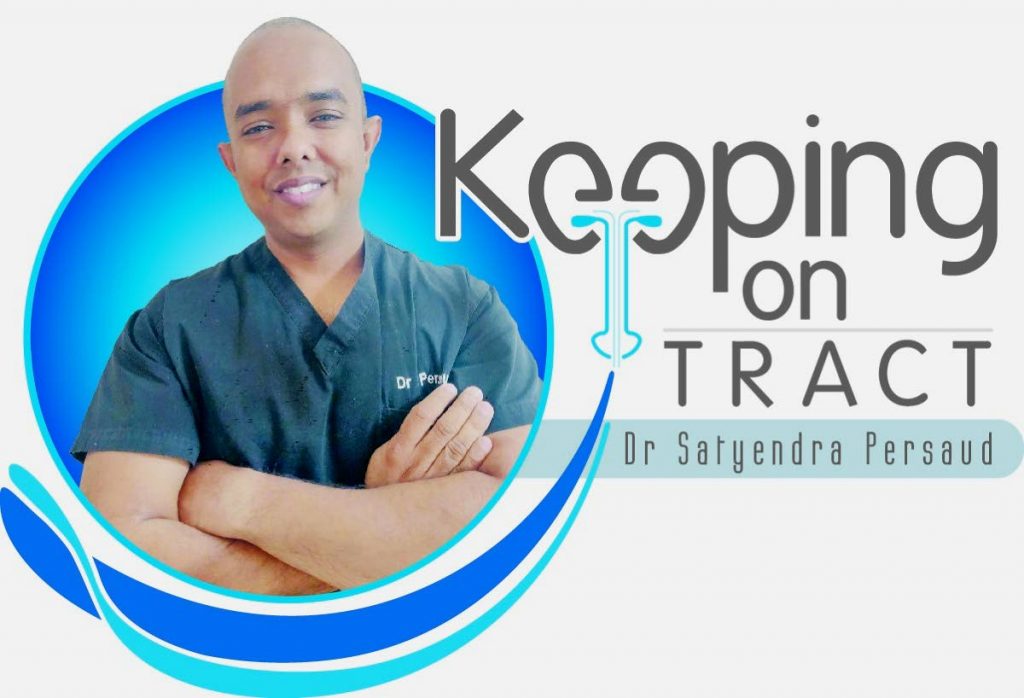What do I eat if I have kidney stones?

SATYENDRA PERSAUD AND ALEEM BACKREDEE
KIDNEY stones are very common in TT and everyone has advice on what you should and should not eat. Indeed, there are a lot of myths. I hope that this clears it up a bit.
Blood and urine tests, including a 24-hour urine collection may guide specific advice tailored for you but the following constitutes general dietary advice for the stone former. The risk of getting a second stone is 50 per cent in ten years and diet goes a long way to reducing this number.
Liquids
Using lots of liquids prevents your urine from getting too concentrated. You should aim for enough fluids to make around two-three litres of urine a day. This is essential and is the most important thing you can do to reduce your chances of forming a stone in the future. While tea and coffee or even alcohol may be consumed in moderation, we recommend water as your primary fluid source. It is always helpful to carry around a water bottle for ease of access. Adding some lemon to the water adds flavour and also helps to make your urine alkaline, which is helpful to prevent kidney stones.
Proteins
Large amounts of animal protein appear to increase your chances of forming a stone. This also includes fish. Animal protein should therefore be taken in moderation and some of these proteins should take the form of dairy to ensure that you are getting adequate amounts of calcium. Proteins contribute to the urine becoming acidic which can increase the risk of stones. Generally, you should limit foods with a high Potential Renal Acid Load (PRAL). Foods with a high PRAL include eggs, meat, nuts and cheddar cheese. An internet search will readily reveal PRAL tables containing many foods.
Salt
Salt (sodium) is excreted by the kidneys along with calcium. This means that the more sodium you ingest and excrete, the more calcium you will be excreting. This can lead to an increase in kidney stones. We therefore recommend that you limit your salt intake to as best as you can. Try not to add extra salt at the dinner table and perhaps look to spices to enhance flavour.
Calcium
Perhaps the greatest myth of all concerns the intake of calcium. Many persons have cut dairy from their diets. This is unnecessary and research has shown that eliminating calcium from the diet does in fact lead to an increased risk of stones. We recommend eating normal amounts of calcium (1200mg/day) from dairy or non-dairy sources. There is no evidence that drinking “hard water” leads to an increased risk of stones so bottled water is not necessary. Calcium supplements may increase your risk of stones and if you are a stone former, should be avoided if possible.
Anything else?
We recommend plenty of fresh fruits and vegetables which are high in citrate and have a low PRAL. Citrate helps to prevent stone formation. Tomato seeds or cucumber seeds do not cause kidney stones and there is no evidence that ingesting olive oil helps a kidney stone to pass.
The most common type of stone is calcium oxalate and you should make an effort to limit (not necessarily eliminate) oxalate containing foods which include tea, chocolate, strawberries, soy and spinach especially if you form calcium oxalate stones.
In TT, Cystone and Rowatinex are very popular agents used to treat kidney stones. However, there is no credible or convincing evidence that either of these agents work. Apart from a small subset of stones usually made of uric acid, most stones cannot be “melted away” by medication.
Dr Backredee is a urologist in training at the University of the West Indies


Comments
"What do I eat if I have kidney stones?"